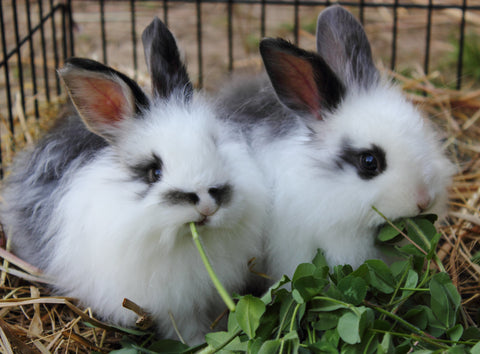Life is a flat circle – The life cycle of a rabbit part 2: Infancy
My dear readers,
Last week I kicked off a series designed to let you in on the wonderful life cycle of a rabbit, from pregnancy to infancy, prime, and death. This week’s article is the second of the series, so if you missed the first instalment about pregnancy you can catch up on that here.
But enough about all that, baby rabbits are cute and I can see you want to learn more, right now! So, without further ado, here is the life, times and car advice of a baby rabbit.
What is a baby rabbit called?
As mentioned in our previous edition, Baby rabbits are also known as kits or bunnies. If your rabbit has given birth or, if you’re bringing a kit home, it is important to understand their care and needs.

What do you feed baby rabbits?
First and foremost, baby rabbits require a proper diet to stay healthy. Kits will drink milk from their mother from birth until around 4-6 weeks of age, though some kits will feed on until the age of 8 or 9 weeks.
Once your kits are ready to wean from their mother, best practise is to remove mama rabbit and keep her in a separate enclosure where she can recover and get some peace. But, I hear you say, how can you know that mama is going well and getting her little ones fed?
One thing to look for is a full belly; these little babies should be full of milk so it’s advisable you check at least once a day to make sure that these bellies are big and full of milk!
If you do inspect the wee ones and you find that their bellies are not full, then an issue has arrived and should be attended to immediately. It might be that the mother is not lactating, that the nest is in improper condition, or the babies themselves might have trouble latching. The golden rule here is that if baby bellies aren’t full, check with a vet before dehydration and weakness set in.

Do rabbits eat their babies?
I know, I know…what sort of question is this?!
Morbid as it might be rabbits have been known to eat their babies, and this could be due to anxiety, stress, excessively territorial behaviour or insufficient dietary concerns. To avoid this issue, it’s best to make sure that mama rabbit has a balanced, nutritional diet of Timothy hay, fresh vegetables (especially high in fibre) and some small amount of pellets. Remember, rabbits are not carnivorous animals so for them to display this behaviour means that something is very wrong.
Furthermore, it’s important to make sure that her environment is free of stress, aggressive males or other adult females in general to avoid any territorial issues.
When do baby rabbits open their eyes?
Kits will start to open their eyes around 7 days old. Around a day or two after first opening their eyes, it’s advisable to check the kits in their nest to check for any sign of problems. You won’t have to worry about your human scent ‘tainting’ the kits; mother rabbit won’t be bothered about whether they smell like your hands or not. What matters most is making sure that the kits are healthy so don’t be afraid to get in there and check them.
Baby rabbit quick facts:
Grooming
- Rabbits also require regular grooming to keep their fur soft and shiny.
- Brushing their fur once or twice a week helps prevent matting and keeps their coat healthy.
- They also need their nails trimmed regularly to prevent them from becoming too long and causing discomfort.
Special Care for Baby Rabbits
- Baby rabbits, especially those under 8 weeks of age, are delicate and need extra care and attention.
- They may not yet be fully weaned and if so may require bottle feeding.
- It is also important to keep them warm and in a safe environment.
If you manage to provide all the comforts listed above, you may find that around the age of 6-7 weeks your baby rabbit is set to ‘leave home’. It’s at this age that the kit should be weaned and removed from the mother as they are hitting their age of independence and need their own space to grow and thrive.
As you can see, kits are some of the cutest creatures on the planet. However, they are very fragile, and I’d advise that ONLY experienced handlers take on the responsibility of taking care of kits full time.
If it should happen though that you are in care of a baby rabbit I hope the above will go someone way to helping look after your kits and giving them the best chance possible.




